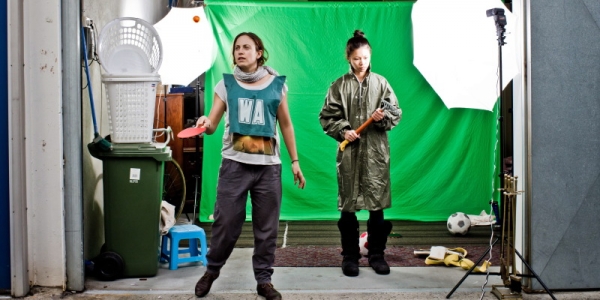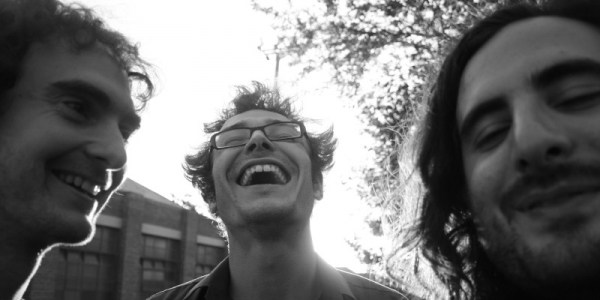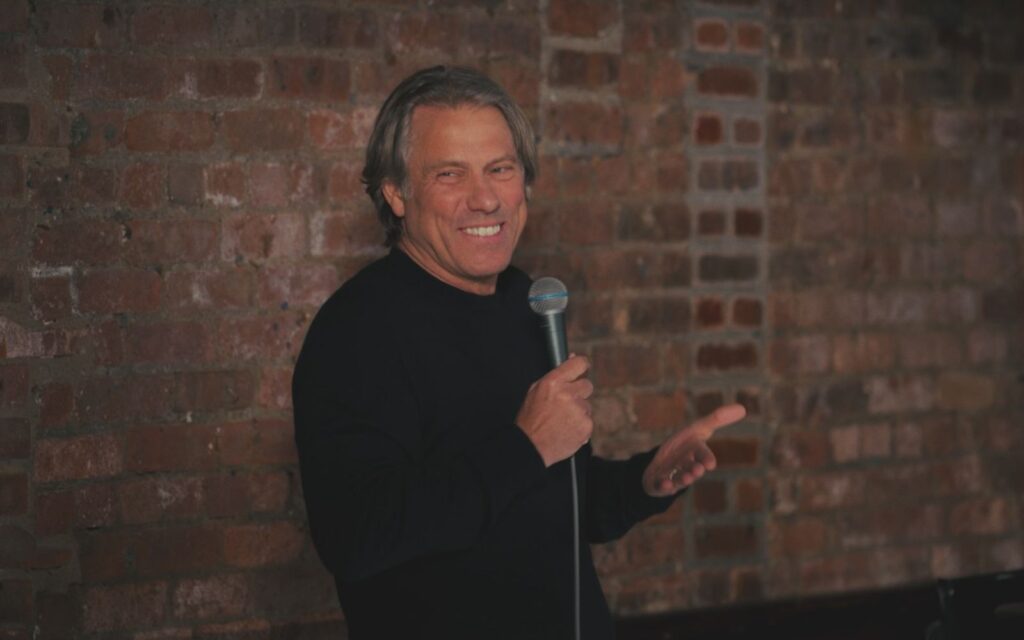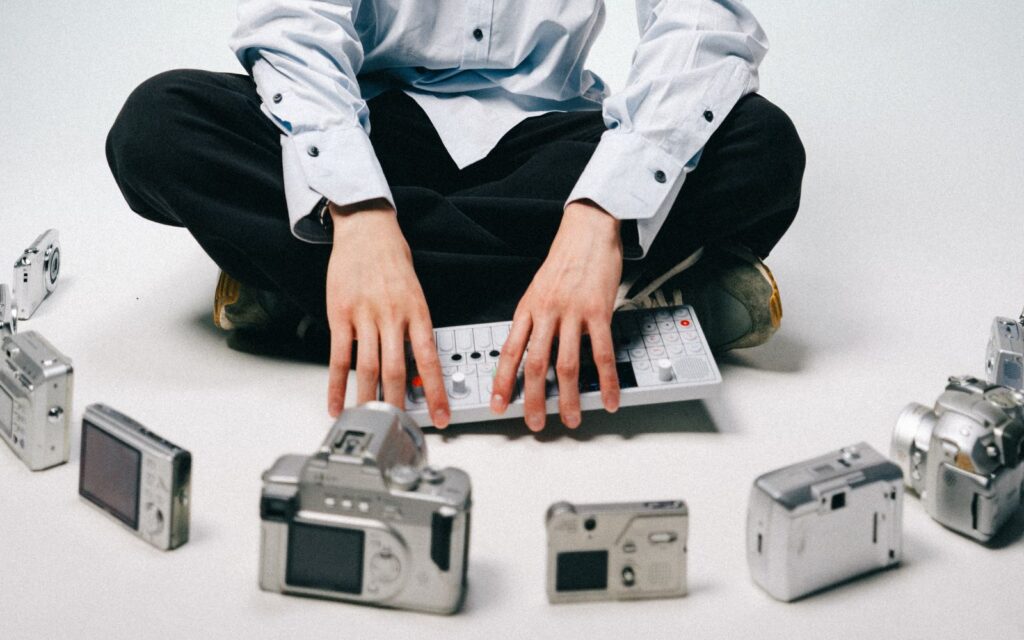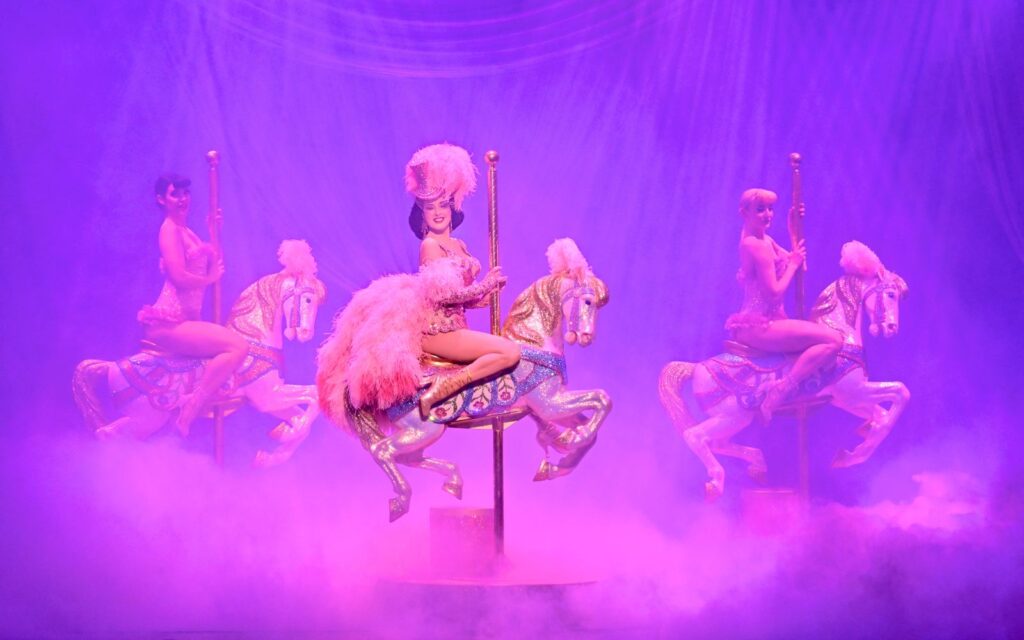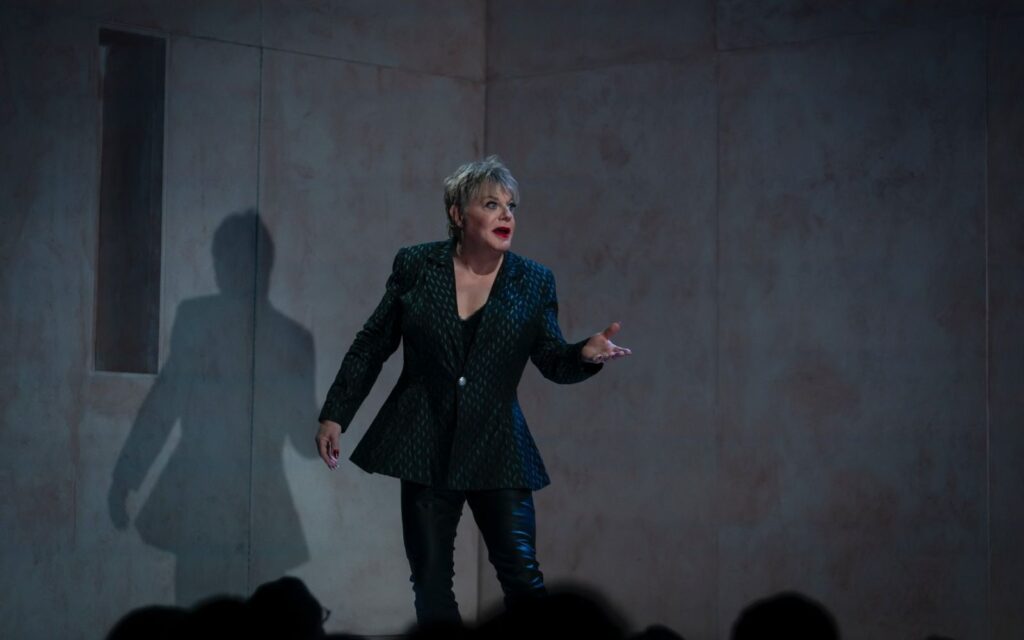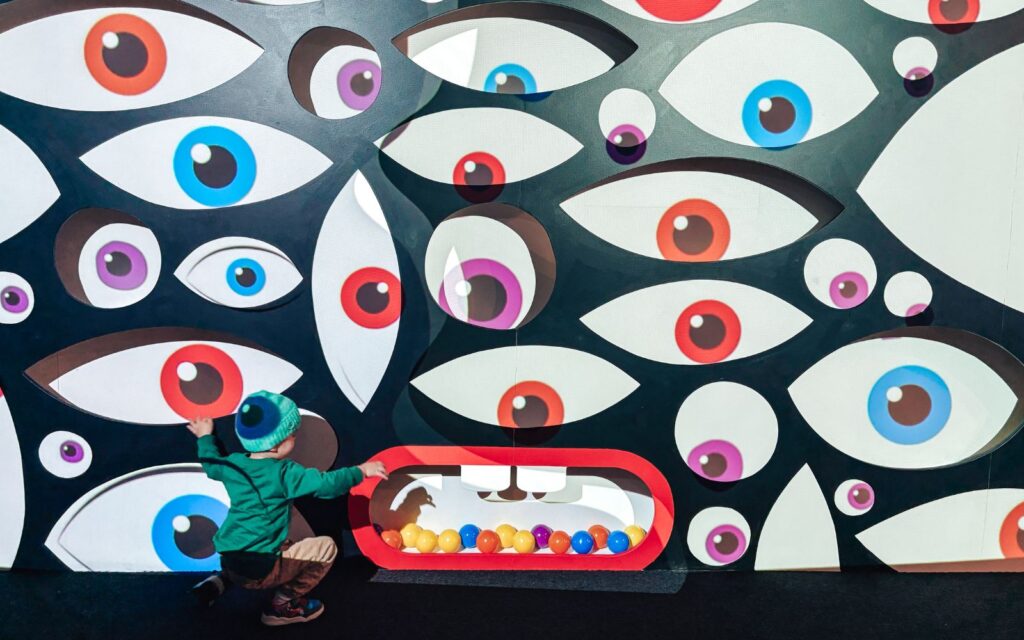Nicola Gunn is a dazzling theatre maker, relentlessly touring and developing her work here and overseas. Her current project Hello My Name Is is a partly solo work that takes place in a community centre and demands audience interaction on a very particular level. The latest incarnation of the piece happened with her season at the Blue Room in Perth last month.
“I really used it as an experiment with audience participation and I really push it and push it to just really make sure that I don’t like it. I don’t want the audience to be left to their own devices. It’s not the kind of show I want to make.”
Audience participation is a hard sell, which Gunn knows better than anyone. But rather than forcing the audience into the uncomfortable position of furthering the story, and ‘performing’ the work for her, in many ways they are there to keep her company. “I don’t like audience participation, but I also don’t like solo shows. And the great dilemma is that I am a solo performer. So it’s about using the audience to perform with me, and to acknowledge the fact that I need someone to talk to. And that, unfortunately, will have to be the audience.”
Gunn included a slighter level of this audience interaction in her last show At the Sans Hotel, for which she won The Stage’s best solo performer award at last year’s Edinburgh Fringe. Her shows in the past have included lonely characters in vacated buildings, desperate to reach out to a slightly bewildered, yet bewitched audience. These characters, she is slowly discovering, are part of a broader, more autobiographical work in progress. “I’m discovering this autobiographical thread, along with this sort of gothic sensibility. This is the first show where I’m actually being myself, Nicola Gunn, and not having a mask or a character or a funny accent. So I think every show leading up to this has been this gradual unmasking. And this is the final one where it is actually just me. It’s following this performance art tradition of making the artist the art. It sounds really self indulgent to say that well, I am what I’m making, but it is me.”
This self-consciousness she is discovering in her own performance, then, might be a reflection of the self-consciousness the audience feels when asked to participate in her show. “In Perth it was really hard because people wanted to act, and pretend they were in a community centre, and I really hated this, the audience acting and breaking the magic, so I had to explain ‘It’s not really a community centre,’ and then we’d have to get into this conversation. So this time there is this narrative of the audience arriving for a workshop called ‘How To Change The World Through Social Transformation,’ so I’m assuming that everyone wants to be here, it’s set up in this very bureaucratic way. Also out of an audience of 50, I only get maybe, 15 people up to do things, so there will always be people watching. So there is still the sense of a show and being watched.”
Which at least means the terminally shy have the option of opting out. Although this may also trigger a feeling of regret, or even jealousy that their shyness has inhibited them truly taking part in the piece. “The idea is that if people opt out of doing activities, I want people to leave going, ‘Wow, I wish I did something, I wanted to but I stopped myself,’ and that’s what I want, that’s the feeling that I want.
At the Sans Hotel tagged itself as a psychological detective story. The feeling that runs through Nicola Gunn’s work, the feeling that makes it so unlike anything else going on in Melbourne is that her shows, like mysteries, don’t actually have a complete story in them. It’s more that each character has their own fragmentary back-story that the audience investigates. The fragments that are there have a greater resonance.
“The show again is playing with that kind of form, because there is no narrative, and people really have to infer their own meaning. I had this eureka moment of actually realising what I was making was a retrospective of Nicola Gunn’s life and work, as if – not as if I was dead, but as if I was someone who was really important, because I’m interested in how we value things, and how we value and don’t value people. And that’s kind of when the show started coming together for me. Because I am personally going through a bit of a career crisis of actually just quitting. And so it’s about choices, and why am I doing this? And again, if I were to retire, this is the retrospective of my life and work at the age of 33.”
Here’s hoping that that doesn’t happen, because even through Nicola Gunn’s work is never going to be easy to describe, or always participate in, it is always going to be work worth seeing.
BY SAM WILSON
